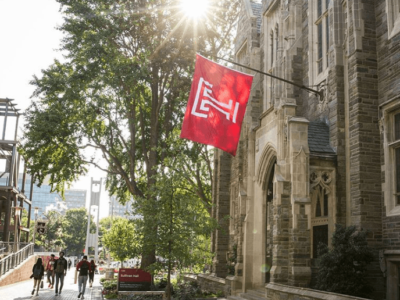Founding Father Thomas Jefferson once said, “If a law is unjust, a man is not only right to disobey, he is obligated to do so.” These words address the importance of the law. As upstanding citizens of the US of A, we value justice and aim to create and act on laws that punish crime that keep us safe. If you get excited after opening your letter that calls you to jury duty, consider a degree in criminal justice. Criminal justice deals with the system of law enforcement, courts and corrections. Students in the major will come to understand how government institutions maintain social control, reduce crime and put guilty suspects behind bars. Your career can take you almost anywhere as an FBI agent, politician, CIA operative, secret service agent, U.S Marshal and more. We ordained and established the best criminal justice colleges after evaluating the intense curriculum, internship opportunities, esteemed faculty, student resources and alumni.
Keep reading find out where you can find the 10 best criminal justice colleges around the country.
10. Marist College
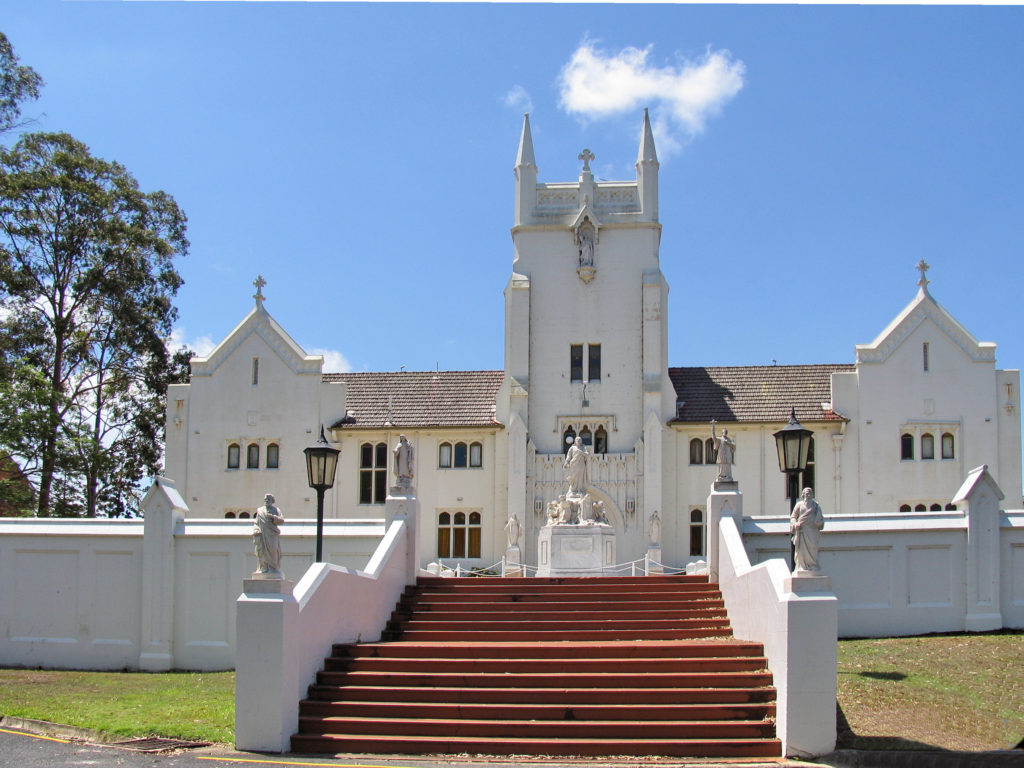
Marist College’s criminal justice major prepares students to make the “blue or red wire” decision in a flash. The program integrates the two main types of criminal justice, criminology theory and professionalized criminal justice, into one well-rounded program. “We want students to go off and make an impact in the criminal justice field, but we want them to also understand why those crimes are committed,” said Julie Raines, chair of Marist’s criminal justice department. Marist faculty and staff work personally with students to prepare them for their intended career. “If a student wants to go to law school, we’ll marry our discipline up with another major that caters specifically to what they want to do career wise,” Raines said. To guarantee a hands-on experience, Marist requires a two or three credit hour internship with a CJ or allied agency. Previous intern sites include the United States Secret Service, the City of New York Police Department and the Duchess County District Attorney’s Office. Choose Marist to pursue your degree in Criminal Justice. You’ll discover the blue wire is the one to cut. Or wait, is it the red?
9. University of California, Irvine

UC Irvine’s Criminology, Law and Society program flat out delivers. The department researches virtually every CJ subject from psychology and law to public policy and crime. “Many of our graduates go on to law school or graduate school in a range of related fields. Others take job in law enforcement, social service, advocacy, government service and policy related arenas,” said Cheryl Maxson, the chair of UC Irvine’s Criminology, Law and Society Department. Distinguished faculty include three former presidents of the American Society of Criminology and former presidents of the Law and Society Association, the Society for the Study of Social Programs and the American Psychology-Law Society. Plus their professor publications basically amount to a mini criminal justice library. Professor Simon A. Cole published Suspect Identities: A History of Fingerprinting and Criminal Identification, which received the 2003 Rachel Carson Prize by the Society for Social Studies of Science. If you find yourself at UC Irvine and don’t want your Criminology journey to end with a Bachelor’s, continue onto their graduate program. Then join multiple research organizations like the Center for Psychology and Law and the Irvine Laboratory for The Study of Space and Crime.
8. Northeastern University
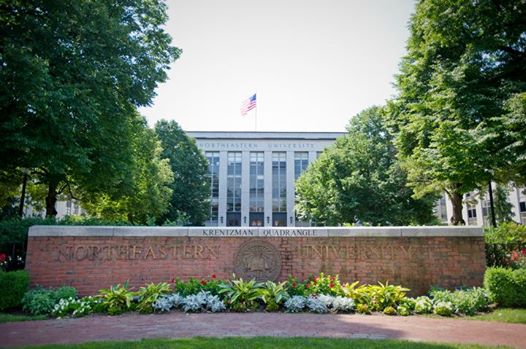
Make a difference before you even graduate from Northeastern with the accelerated Plus One Program. The cream of the criminal justice crop get selected to complete both their B.S. and M.S. in Criminology and Criminal Justice in less time than if completed individually. Students can either earn a Bachelor’s of Science in Criminal Justice or opt for a combined degree in CJ and computer science, human services, political science or psychology, or even a B.S./J.D. program. Want to explore criminal justice beyond Boston? Spread your wings and take advantage of Northeastern’s immersive Dialogue of Civilizations program and international co-ops. They also encourage service learning with their multiple partnerships with neighborhood agencies, health clinics, schools and nonprofit organizations. “[Professors] want to help you get involved in research and pursue your interests outside of classwork. The program has truly helped me… develop my research skills, as well as given me the tools to apply criminal justice theory and basic statistics,” said grad student Katherine Mirani. Professor Anthony A. Braga is a leading researcher on crime prevention, serving as both principal and co-principal investigator for projects for the U.S National Institute of Justice, National Institutes of Health and the National Science Foundation. Distinguished professor, Roderick L. Ireland, served as Massachusetts Supreme Judicial court from 1997 to 2014 as the African American to sit on that bench ever.
7. Temple University
Stretch your mind with some serious criminal justice perspective at Temple. “CJ is a big tent. In other words, it is an expansive system and people focus on different parts of it,” said Dr. Elizabeth Groff, an associate professor of CJ at Temple. “We emphasize critical thinking, applying theory to practice, writing and speaking clearly, data analysis and program evaluation analysis.” Students who love the great outdoors can apply for a paid internship opportunity through Temple, ProRanger Philedelphia. The National Park Service and Temple team up to recruit and train law enforcement park rangers. Then at graduation, students can actually transition into a permanent tenure law enforcement park ranger position. Or get an actual inside look at the Philadelphia Prison System through Temple’s Inside-Out Prison Exchange Program. The international administrative office for the Inside Out program actually sits in Temple’s Criminal Justice department. “Upon graduation, I want our students to feel well-equipped to help the world be a better no place no matter what part of the CJ system they join,” said Groff. The passion and confidence coupled with that Temple CJ degree will no doubt inspire your to fulfill your goals, big and small.
6. University at Albany, State University of New York
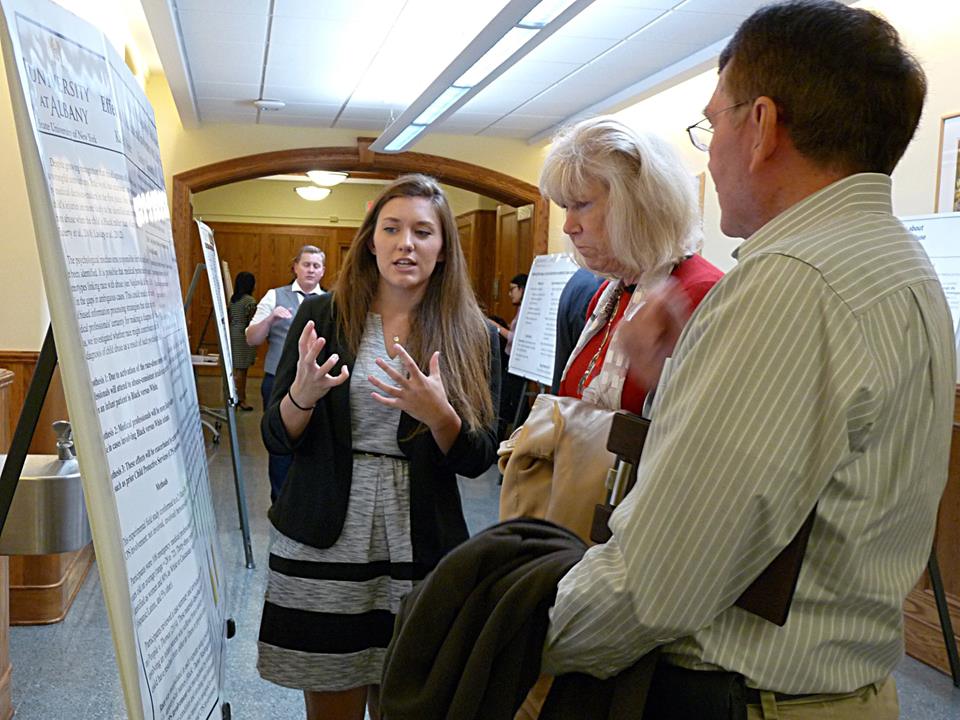
You’ll gain major confidence in socio-political debates with your family at Thanksgiving at SUNY Albany. Its School of Criminal Justice focuses on the interactions between the agencies that make up our criminal justice system and the relationship between these systems in relation to society. Thanks to UAlbany’s exhaustive, interdisciplinary curriculum, these big-brained graduates find success in academic and in–practice positions as well as research and teaching. Students can also dig deeper into criminal justice at the Hindelang Criminal Justice Research Center, founded in 1972 by a SUNY Albany professor. Back in the classroom, students learn from distinguished professors like Dr. William Alex Pridemore, who received the 2008 Junior Scholar Award from the American Sociological Association’s Section on Alcohol, Drugs and Tobacco and the Radzinowicz Memorial Prize in 2012 for his research on poverty, inequality and national homicide rates. Let’s give a standing ovation to alumna Catherine Cerulli, who leads in the field of domestic violence prevention and directs the research lab at University of Rochester Susan B. Anthony Center for Women’s Leadership. With outstanding faculty and alumni, you’ll get all the guidance you need with a degree in criminal justice from SUNY Albany.
5. Florida State University
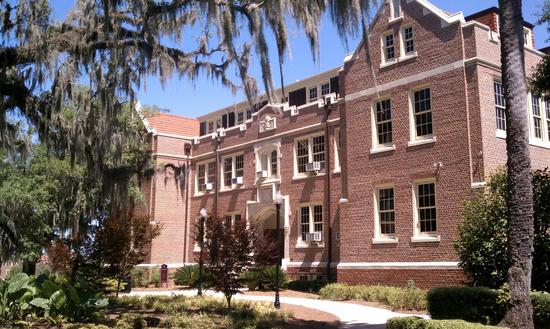
Tomahawk chop for FSU’s powerhouse Criminal Justice program. FSU’s policy defining research, collaborative study and leadership engagement opportunities all elevate their criminology program. Criminology faculty serve as Editor and Co-Editor for some of the most influential scholarly journals in the field. Professor Bill Bales served as director of research with the Florida Department of Corrections since 1991. Professor of Criminology, Allen E. Liksa, currently serves as the co-editor of “Criminology” the official flagship journal of the American Society of Criminology. Students can intern at many government organizations in Tallahassee like the FBI, FDA, United States Park Police and many more. Buckle down in the research at FSU’s Center for Criminology and Public Policy Research—this center provides a transformative experience in education, research and policy. The Center conducts research on federal, state and local courts, corrections and schools in an effort to improve “quality of life” outcomes. Alum from the College of Criminology and Criminal Justice include William Cheek, who served in the FBI for 30 years as a Special Agent, Brian Stephens, who works as the Global Protective Services Executive for the bank Merrill Lynch, and Drew Levine, who manages the North American Secure Solutions businesses for G4S USA. You can’t go wrong with a program located in the center of state judicial and legislative action happening day-in and day-out.
4. Stonehill College
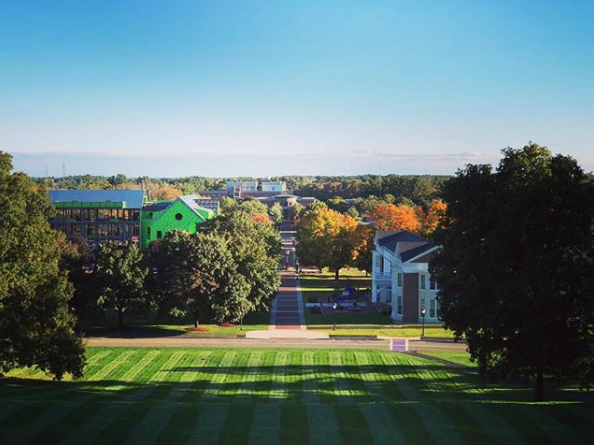
Head to Easton, MA to earn one of the best CJ degrees in the country. Stonehill’s interdisciplinary program emphasizes critical thinking and communication skills –skills employers will always want. While taking standard classes in criminal justice, sociology, juvenile delinquency and the accused, you’ll also enroll in research-intensive classes. Take advantage of Stonehill’s LION (Learning Inside Out Network) program, an international internship and research opportunity. Pack an extra pair of Birkenstocks and your North Face backpack; this program takes you to either Armenia or Serbia for your semester–long experience. Once you get back, find your dream criminal justice mentor from the New Bedford Police Department, Massachusetts State Police or the U.S Department of Commerce. Learn from criminal justice experts like Professor Pam Kelley, an ace in crime analysis and mapping, research and evaluation methods and criminal justice statistical analysis. Make an impact in the community by volunteering at Kelley Research Associates, where Kelley serves as Executive Director. KRA is a private evaluation and research firm offering students internships conducting crime analysis and crime mapping for local police agencies. Make sure to take a class with Ann Marie Rocheleau, who collaborated on numerous publications and reports for the U.S. Department of Justice.
3. Michigan State University
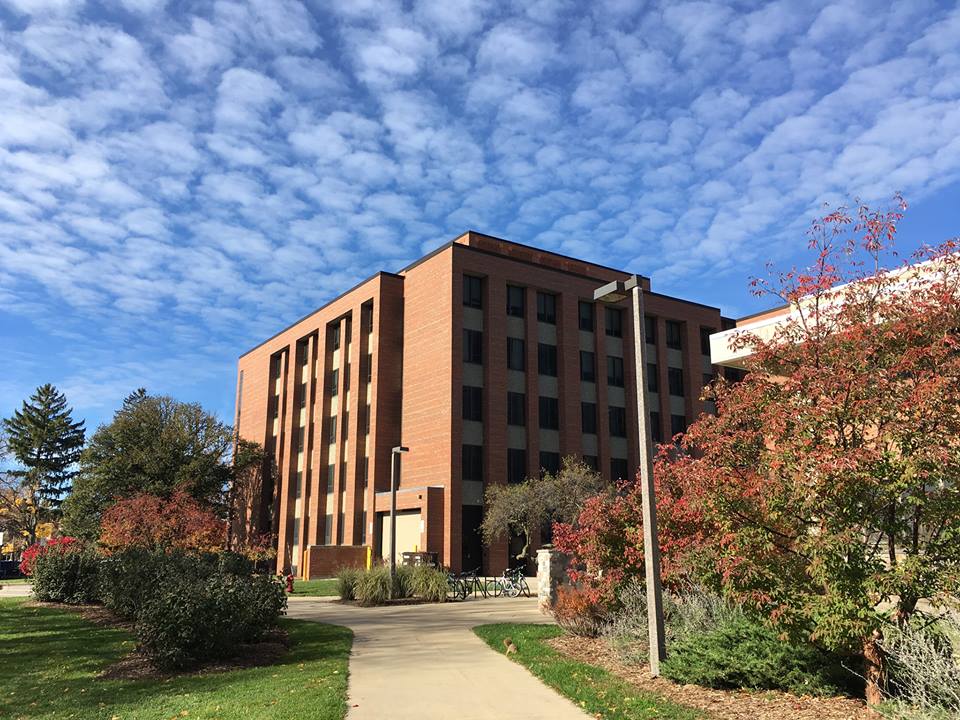
Michigan State University is home to the oldest Criminal Justice program in the nation. Want to feel like a bona fide agent of change upon graduating? MSU’s vision for the future is to use science to transform justice and improve the quality of life in all communities. Faculty interests affect the degrees offered by the program—but faculty includes experts in almost every area of criminal justice, like criminology, justice issues, emerging areas of crime, innovative responses to crime in the 21st century and more. MSU also offers the Inside Out program. Its version of the course has students swap places with inmate students at the Cooper Street correctional Facility in Jackson, Michigan. Or go international with one of the four study abroad programs specifically for criminal justice majors: Comparative Law and Legal Systems in the Caribbean; Its People, Government, Justice Systems, Public Policies in Australia; Paradise in Peril? Exploring Madagascar’s Biodiversity Crisis; and Justice and Development Practice in Transitional Societies of Southeast Asia in the Philippines. Back in Michigan, Dr. April Zeoli joined the Firearm-Safety Among Children and Teens Consortium. Professor, David L. Carter, is an expert in violent crime control and law enforcement intelligence. He presented training sessions at the FBI National Academy, the FBI Law Enforcement Executive Development Seminar (LEEDS) and the International Law Enforcement Academy in Budapest, Hungary. Notable graduates include alumnus Jeremy Carter, co-chair of the National Institute of Justice’s standing scientific review panel on technology, and Joseph Schafer, who was named one of the Commissioners for the Commission on Accreditation for Law Enforcement Agencies (CALEA). Get inspired to change the world by the accomplishments of esteemed faculty at MSU.
2. Old Dominion University
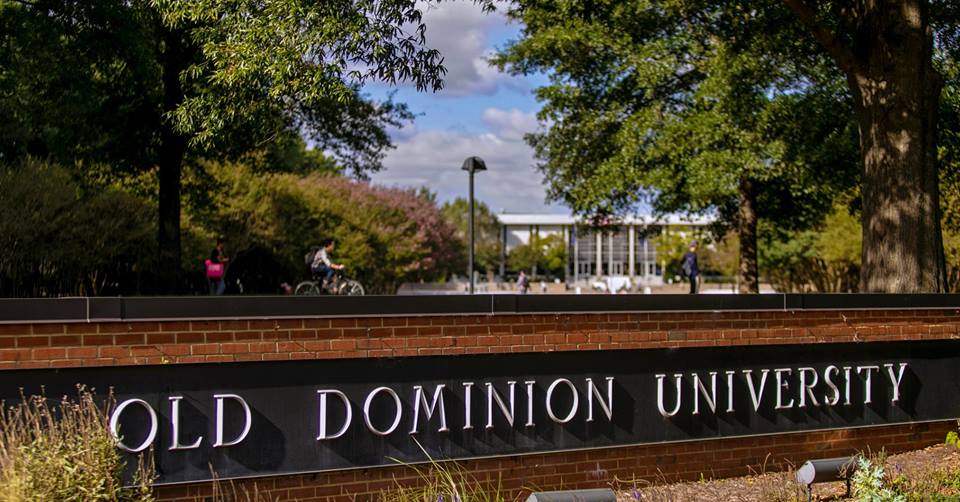
Criminal justice students can either go into research or hands-on positions in the field. Old Dominion prepares them for both by offering a senior capstone research project and internship credit for coursework. And the professors put blood, sweat and tears into their research that they present at multiple national and international conferences. They also secure external funding from the National Institute of Health (NIH), the National Institute of Justice (NIJ), local and state agencies and private research organizations. And while not all things in life are guaranteed, students can count on landing an internship as a student at Old Dominion. Its Career Advantage Program boasts a 100 percent student–internship placement rate at places like Delaware State Police, United States Secret Service, Drug Enforcement Administration, the Federal Bureau of Prisons and more. Students can keep adding to their resume by joining organizations like the Academy of Criminal Justice Sciences, Southern Criminal Justice Association and the National Association for Blacks in Criminal Justice. Graduates include Colonel K.L. Wright, the Chief of Police in Chesapeake Virginia, and Michael John Bloomfield, former American astronaut. Get educated with professors like Ingrid Whitaker, who wrote “Child Social Well Being in the U.S.: Unequal Opportunities and the Role of State,” and Dr. Dianne Carmody, whose research interests include intimate partner violence, school violence and rape victimization. With impressive faculty to take you under their wing, how could you say no to an acceptance letter from Old Dominion?
1. Pace University

Pace adjusts its criminal justice curriculum to make sure students are on the cutting edge of the field. It also encourages students to minor in a subject area that make them an even more marketable candidate like computer science, a foreign language or psychology. Essentially this program feeds your passion while developing your professional well-roundedness. Coursework in Pace’s CJ program includes criminology, investigation, criminal law, evidence and procedure, police-community relations, community policing, terrorism, probation and corrections. And you won’t need to stress about building up your resume: The Pace Internship program connects 1,200 students to internship positions with more than 300 partner companies. In your free time, join campus organizations like The Criminal Justice Society. In partnership with the Center for Homeland Defense and Security, members organize lectures, professional meetings, hands-on activities and special events. And with this partnership comes an executive master’s degree, the Master of Arts in Management for Public Safety and Homeland Security Professionals. Chair and professor, Joseph Ryan, testified before the U.S. Congress’ sub-committee on National Security, Emerging Threats and International Relations and completed an evaluation of a master’s degree at the Naval Postgraduate School. Professor Hasan Arslan worked nine years as the Assistant Director of Collection for the Institute for the Study of Violent Groups (ISVG), contributed to the development of a database capable of tracking more than 2,000 global and domestic extremist groups. Why haven’t you started packing? Pick up the pace because your opportunities to change the world are endless with a criminal justice degree from Pace University.










